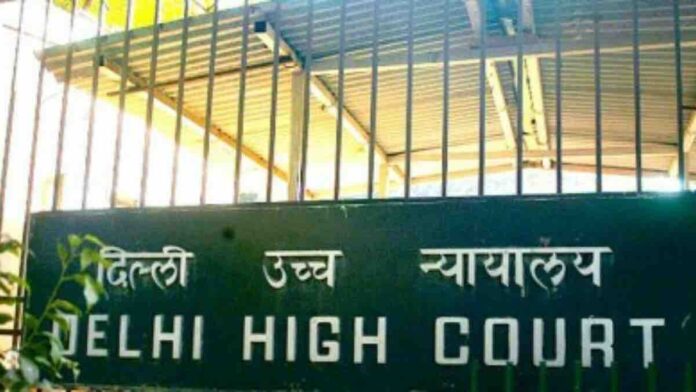The Ministry of Home Affairs (MHA) has told the Delhi High Court that lawful interception-related records are categorised as highly classified documents and minimal data is maintained for such classified information.
Responding to a petition about the disclosure of information on state-sponsored electronic surveillance under the Right To Information (RTI) Act, the union ministry said the Cyber and Information Security (CIS) Division does not maintain any statistical data related to lawful interception and monitoring as such records are not required for any functional purpose.
Seeking dismissal of the petition, it said the relevant acts and rules are in public domain and petitioner Apar Gupta must be aware that all records pertaining to lawful interception are destroyed every six months by the MHA after review of directions by the review committee and if not required for any functional requirement.

“It is submitted that the lawful interception and monitoring is carried out by the authorised law enforcement agencies with due permission of the competent authority if required in the interest of sovereignty and integrity of the country, security of the state, public order or incitement of an offence, under the legal provisions ,” the MHA said in its affidavit filed in response to the petition.
It further said, “Therefore, it is unreasonable for the petitioner to expect the record for a period of two years and thereafter, level allegation that the respondent had been allowed for purported destruction of records and to belatedly change their stance to a new claim that data could not be disclosed since the records had been destroyed.”
The matter came up before Justice Subramonium Prasad who listed it for hearing on October 16.
Petitioner Apar Gupta, co-founder and executive director of Internet Freedom Foundation (IFF) and also a lawyer, had in December 2018 filed six applications under the RTI Act seeking details of the number of orders passed under Section 69 of the Information Technology Act granting permission for electronic surveillance during a certain period.
The Centre was represented through standing counsel Anurag Ahluwalia.
The ministry, in its affidavit, said monthly reports are submitted to the office of the competent authority by the authorised security and law enforcement agencies containing information of secret nature regarding the outcome of ongoing investigation and other operations, for which authorisation is sought under the law.
In July last year, the high court had given six weeks to the Centre to file its reply to the petition which challenges a Central Information Commission (CIC) order refusing to direct disclosure of certain data on state-sponsored electronic surveillance.
The petitioner said while deciding his second appeal under the RTI regime, the CIC proceeded upon an erroneous understanding of the law and failed to sufficiently examine the “belated” averment of the MHA that the data sought had been destroyed and no longer available.
The counsel appearing for the petitioner had earlier submitted that he was only seeking the statistical data on “how many times” interception was resorted to and nothing else.
Also Read
In the petition, filed through lawyer Vrinda Bhandari, the petitioner has informed that according to the Centre Public Information Officer’s (CPIO) stand before the CIC, the home ministry did not maintain any statistical information related to lawful interception and monitoring, but did not cite any statutory provision or even an internal policy that supports its stand.
“No personally identifiable information was sought in the RTI queries. The petitioner did not ask for details of specific interception orders or the identity or profile of the targeted individuals, but instead sought anonymous and aggregate figures to understand the extent of state surveillance. Further, the queries relate to data that the respondents ought to have in their possession, since only the MHA is empowered to issue such orders,” the petition has said.
It said that in 2019, the CPIO had disposed of the petitioner’s requests for information, stating that the disclosure of information related to lawful interception/phone tapping/monitor or decrypt, is exempted under section 8(1)(a), 8(1)(g) and 8(1)(h) of the RTI Act and the same was subsequently not interfered with by the First Appellate Authority.
The petition also seeks guidelines and directions to prevent destruction of information sought in RTI proceedings on account of the absence of rules or practices on weeding out of documents during the pendency of RTI proceedings.







